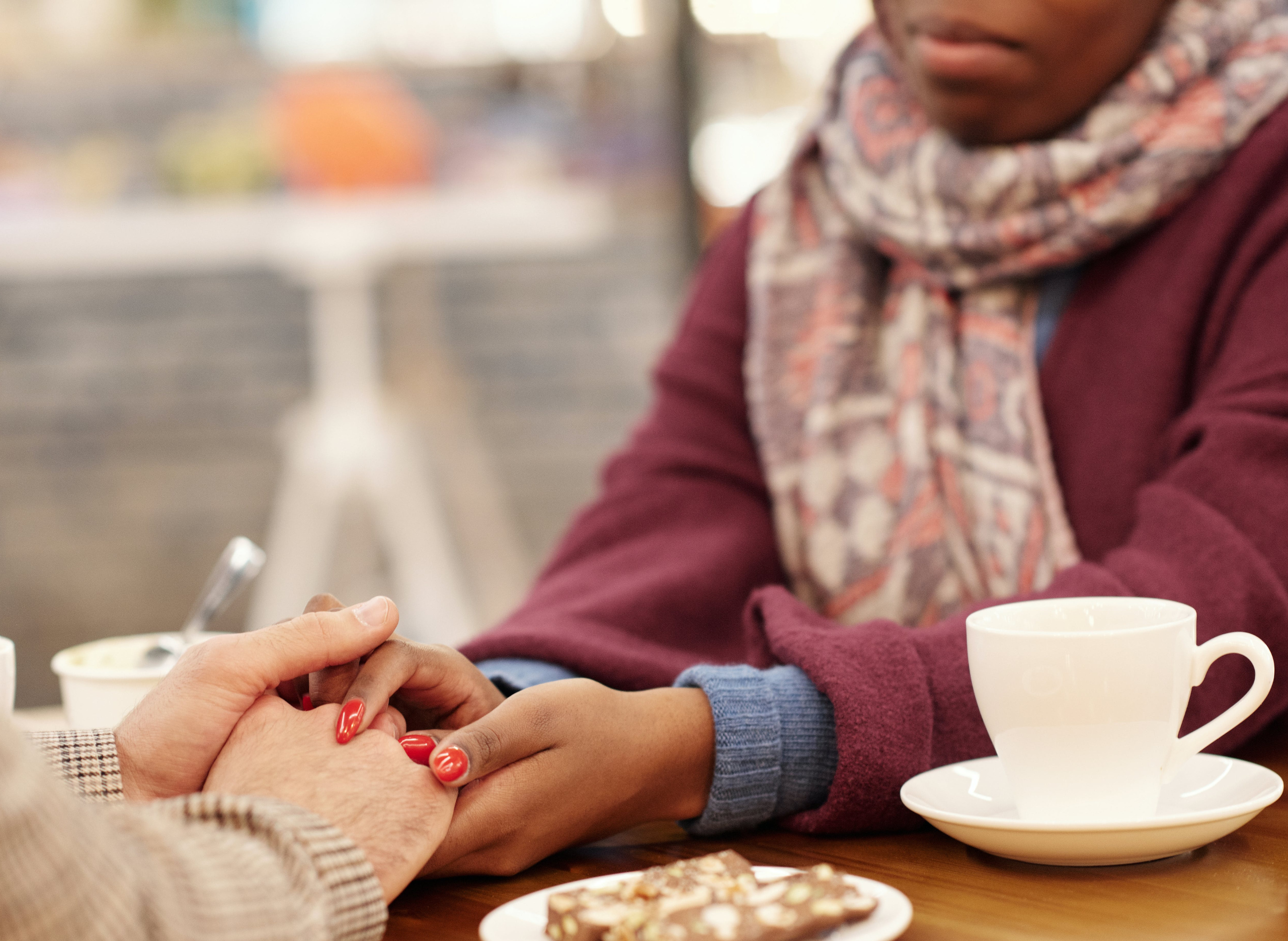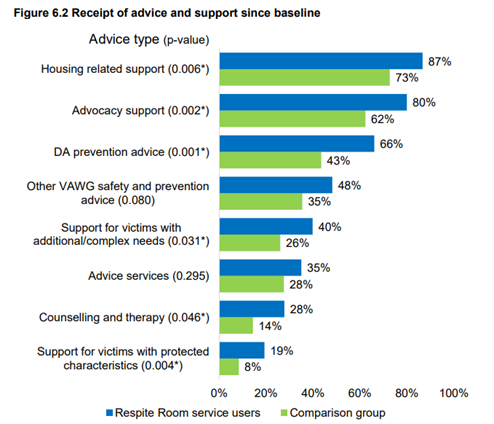
The Respite Rooms Programme
In April 2021, the Domestic Abuse Act was signed into law. It sets out to protect victims of Domestic Abuse and strengthen the measures to tackle perpetrators. The Government allocated £257 million to councils across England to make sure safe accommodation spaces such as refuges and shelters can provide vital support. The support includes counselling, assistance with rehousing, financial advice and play therapy.
As part of this, the Government announced funding of £5.4 million for safe accommodation in the form of Respite Rooms across 12 Local Authorities.
The Respite Rooms pilot programme was set up to trial an approach to providing safe accommodation to individuals experiencing homelessness in the form of a Respite Room, offering specialised support with the aim of helping the individual to move on to their own independent accommodation.
IFF Research was commissioned by the Department for Levelling Up, Housing and Communities (DLUHC), in partnership with Bryson Purdon Social Research (BPSR) to evaluate the effectiveness of the Respite Rooms pilot programme.
The programme was initially designed to run for a year, but later extended to cover a period of 18 months. It offered a person-centred approach to meet the needs of extremely vulnerable women and had a particular focus on women who were currently or historically homeless and affected by domestic abuse. These individuals often had additional needs to consider, such as drug or alcohol dependency or mental health issues. These individuals were identified as unlikely to approach statutory services or the National Domestic Abuse Helpline independently.
In total, 792 individuals were offered practical, emotional, specialist and additional wraparound support through the Respite Room pilot programme and it provided 121 bed spaces. The support included intensive, trauma informed support, housing related support, Domestic Abuse prevention advice and financial and legal advice. There is strong evidence showing Violence against Women and Girls (VAWG) and homelessness are linked. The availability of safe accommodation plays an important role in avoiding further incidents by the same perpetrator or victimisation by other perpetrators in the future.
Our evaluation
- An initial feasibility study, in partnership with BPSR helped us to identify any challenges the programme would face and which the evaluation would have to consider. The key challenges identified, related to the small scale of the trial, being able to track users who’ve not engaged in services before, and service users moving to another Local Authority. Additionally, the programme’s long-term goals were unpredictable, potentially extending past the evaluation timeframe. Understandably it was hard to predict long-term impact, but we were able to identify key factors that could be monitored over time.
- Other elements of the feasibility study included a literature review, review of policy and secondary data, in depth interviews with key stakeholders and three case studies of individual Respite Rooms. A Theory of Change was developed, allowing us to explore the policy’s design and likely outcomes, outputs, and impacts, for the purposes of developing an evaluation design.
- The second phase built on our learnings and included development and sign off for key research questions, tools and timescales.
- Phase 3 included interviews with national-level stakeholders, Local Authorities and provider leads in each Respite Rooms area as well as service users and 6 in-depth case studies. The case studies allowed us to gain diverse perspectives on service users experiences and staff interactions and provided us with a more in-depth understanding and analysis of how the project operated.
- Finally, an impact assessment was developed. This helped us to compare the data captured over time of Respite Room users with a similar comparison group, which was collected over time by Local Authorities and analysed at the end.
Key findings

Service users rated the support they received very highly. The Respite Rooms allowed time for staff and residents to form one-to-one relationships and build trust.
The trial appears to have a large and statistically significant positive impact on service users.
- Respite Room service users received an average number of 4.03 services whilst in a Respite Room, compared to 2.53 among the comparison group. (Shown in figure 6.2)
- 65% of Respite Room service users moved to safe or secure accommodation after leaving a Respite Room, compared to 48% of the comparison group after three months.
The programme design also enabled the 12 pilot projects the flexibility to develop a variety of approaches tailored to service users in their area. It enabled vulnerable people, many of whom had previously failed experiences of engagement with other services, to achieve positive outcomes via local move-on destinations.
Challenges that the programme faced
The programme encountered challenges in staffing, providing support to high-needs service users, overseeing interactions, and ensuring that service users received appropriate support from external organisations. Additionally, challenges related to identifying suitable move-on accommodation, meaning longer than planned stays and therefore fewer individuals being supported across the programme duration.
What does the future look like for Respite Rooms?
Most Project Leads stated that they would like to continue the Respite Rooms programme at the time of the follow-up interviews and most (10 out of 12) had managed to secure funding at the time of the follow up interviews, which has allowed them to continue. Positively, some Respite Rooms have received additional funding from sources such as the Rough Sleeping Initiative, charitable grants, or the New Burdens Duty funding. In at least one case, this included ongoing funding for the pilot phase and beyond March 2023.
The Respite Rooms pilot programme has positively impacted the lives of vulnerable individuals. While challenges remain, the endorsement from Project Leads and securing additional funding in some areas reinforces the potential for Respite Rooms to play a pivotal role in addressing homelessness and Violence Against Women and Girls.